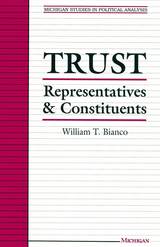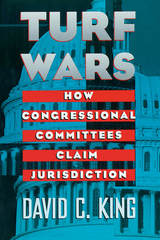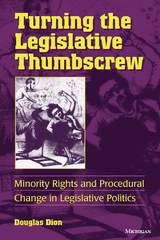4 start with T start with T

Taking the Initiative shows that majority party leaders in Congress have set and successfully pushed their own policy agendas for decades—revealing the 'Contract With America' as only the most recent, and certainly not the most successful, example of independent policy making.
Cutting deeply into the politics and personalities of three decades of party leadership, John B. Bader probes the strategies and evaluates the effectiveness of House and Senate leaders operating in a divided government, when Congress and the presidency are controlled by different political parties. He provides a historical context for analyzing the"Contract" and shows that aggressive agenda-setting has long been a regular feature of majority party leadership.
Bader interviewed more than seventy congressional leaders, staff members, party officials, and political consultants, including speakers Thomas "Tip" O'Neill and Jim Wright, for this book. He supplemented these interviews with research in largely unexplored archival materials such as press conference transcripts, notes from White House leadership meetings, and staff memoranda on strategy.

Why do constituents sometimes defer to their representative's judgment, rewarding her for acting as she thinks best, even when she ignores their demands? By making decisions about trust, constituents determine whether their representative is rewarded for implementing their demands or for using her judgment. These decisions shape legislator behavior and, through behavior, policy outcomes. Therefore, any attempt to explain or evaluate representative institutions such as the modern Congress requires an answer to a simple question: When do constituents trust their representative, and what is the basis of that trust?
This book is the first systematic analysis of constituent trust. It assumes that elected officials and ordinary citizens are rational actors. However, the book moves beyond the standard rational choice framework in three ways. It avoids narrow, unrealistic assumptions about motivations and information. It shows that many kinds of behavior not usually thought of as rational choices, such as a voter's desire to be represented by "someone like them," are the product of a systematic, predictable calculus---a calculus aimed at securing favorable policy outcomes. Finally, the book uses interviews with ninety-three members of the U.S. House of Representatives to test its predictions about trust.

Political scientists have long maintained that jurisdictions are relatively static, changing only at times of dramatic reforms. Not so, says King. Combining quantitative evidence with interviews and case studies, he shows how on-going turf wars make jurisdictions fluid.
According to King, jurisdictional change stems both from legislators seeking electoral advantage and from nonpartisan House parliamentarians referring ambiguous bills to committees with the expertise to handle the issues. King brilliantly dissects the politics of turf grabbing and at the same time shows how parliamentarians have become institutional guardians of the legislative process.
Original and insightful, Turf Wars will be valuable to those interested in congressional studies and American politics more generally.

Turning the Legislative Thumbscrew is a work that combines formal analysis with extensive historical evidence to address an important problem in democratic theory. Specialists in legislative politics and American political development, as well as those more broadly interested in the relationship between democratic theory and institutional structure, will find the work of great interest.
Douglas Dion is Assistant Professor of Political Science, University of Michigan.
READERS
Browse our collection.
PUBLISHERS
See BiblioVault's publisher services.
STUDENT SERVICES
Files for college accessibility offices.
UChicago Accessibility Resources
home | accessibility | search | about | contact us
BiblioVault ® 2001 - 2024
The University of Chicago Press









